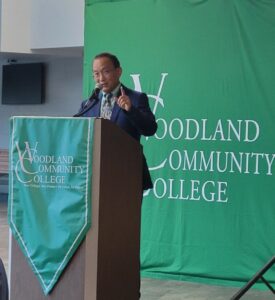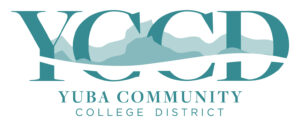Shouan Pan, Chancellor of Yuba Community College District
 As I write this article in late March 2024, I am completing nine months of serving as Chancellor of Yuba Community College District (YCCD). While settling into my new role and becoming acquainted with the community, I have had the opportunity to meet many individuals — nurses, dental hygienists, police officers, as well as elected city and county leaders — who either have personal ties to one of YCCD’s two colleges or have relatives who have studied or worked at one.
As I write this article in late March 2024, I am completing nine months of serving as Chancellor of Yuba Community College District (YCCD). While settling into my new role and becoming acquainted with the community, I have had the opportunity to meet many individuals — nurses, dental hygienists, police officers, as well as elected city and county leaders — who either have personal ties to one of YCCD’s two colleges or have relatives who have studied or worked at one.
Each person has a different story, but I hear a consistent theme: Yuba College (YC) or Woodland Community College (WCC) played a vital role in getting them where they are today. I feel honored to be a part of a community college system that is so deeply integrated into our communities, serving them in countless impactful ways both now and in the future.
I have come to understand that YCCD’s strong connections with the diverse communities it serves establish YC and WCC as anchor institutions for the eight counties spanning across rural, north-central California. Like other rural community colleges in California, YCCD’s institutions have their own set of challenges, but they also draw benefits from their strengths.
Unlike their urban counterparts, rural community colleges serve large geographic areas that have low population density, which often means smaller enrollment and budgets. Additionally, staff take on multiple roles and responsibilities beyond their official titles, and administrators manage branch campuses situated miles apart. That has been the reality for YC and WCC, and the COVID-19 global pandemic exasperated these challenges. I am relieved and inspired to see that they have not allowed these obstacles to weaken their commitment to serving students and the communities.
YC and WCC continue to embrace new and innovative initiatives. Both are federally designated Hispanic Serving Institutions, reflecting YCCD’s commitment to strive for equitable student success. Both colleges have significantly expanded dual enrollment and currently serve over 3,500 dual-enrolled students. A significant percentage of these students are the first in their families to take college-level courses and come from populations that have been historically underserved.
Building business partnerships is a priority for YC and WCC to fully serve their mission. Last fall, YC collaborated with the Yuba Water Agency to offer a highly sought-after Watershed Management program, resulting in an enrollment of more than sixty students. Upon graduating from the program, they will have the opportunity to work in an exceptional, high-paying career field. The financial backing provided by the Yuba Water Agency has been instrumental in making this program feasible, with YC taking proactive steps to address a vital need for workforce development within the region.
Similarly, WCC offers the Environmental Technology Program with a specialization in Drinking Water and Wastewater Technology at its Lake County Campus. The program has proven to be a resounding success, providing many post-traditional students with a solid foundation, industry recognition, and the practical skills needed to excel in the dynamic field of environmental technology.
Like sister colleges across the state, YCCD has always prioritized student success. Our faculty, staff, administrators, and the Governing Board focus heavily on raising degree and certificate completion and graduation for all students. The work we are doing to enhance student support services, streamline processes, improve academic support, and respond to students’ basic needs is paying off. Our completion, transfer, and living wage outcomes significantly exceed state averages.
In a recent study session of the District Board of Trustees, college and District staff reported that student completion of associate degrees for the District increased by 24%, from 851degree completers in 2017 to 1,601 degree completers in 2021. For YC, the increase is 16% for the same period, from 624 to 721; for WCC, the increase is 48%, from 229 to 340. This significant boost in student degree completion across YCCD’s two colleges has only been possible due to the faculty and staff’s commitment to equitable student success.
As we recognize Community College Month this April, it is befitting for us to take a moment to celebrate YCCD and the other 114 community colleges across the state and honor our students, faculty, staff, trustees, and supporters. Each of these institutions has, in its own way, played a vital role in improving California’s educational and economic health and development, one student, one community at a time.

